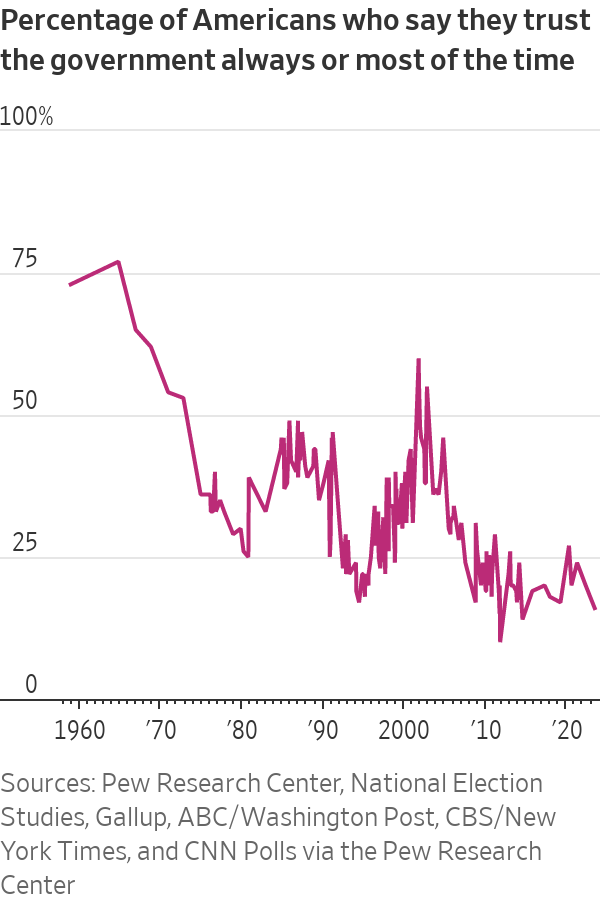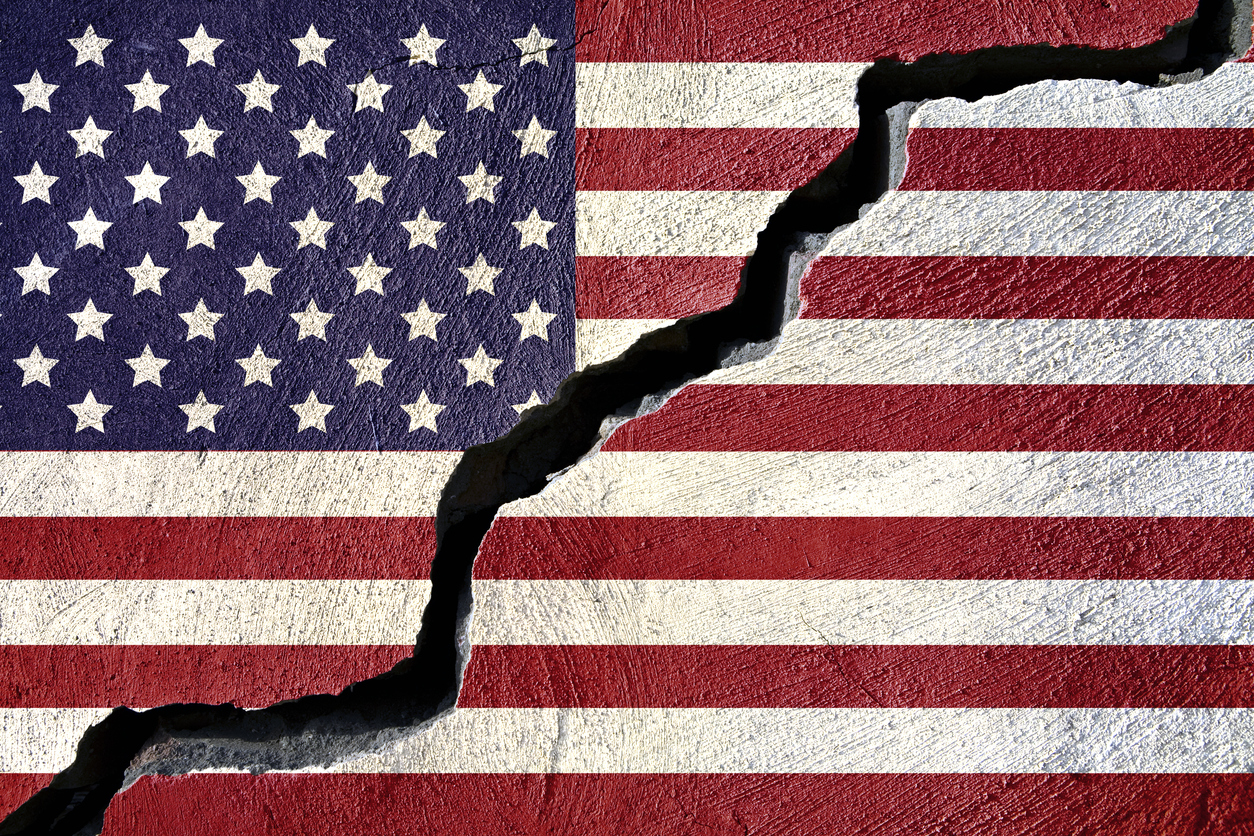This past Wednesday, a friend of mine sent me an article from CNBC about the Federal Reserve. Knowing his personal take on our central bank, I knew it was not going to be a favorable one. To summarize the article, the economy is flashing signs of a recession, and the Fed will really screw things up if it doesn’t start cutting the overnight rate soon.
To be sure, in a lot of ways, the recent economic data feels like an earnings report from a company who used accounting gimmicks to hit its quarterly numbers. Hey, there is nothing wrong with taking advantage of GASB rules and IRS loopholes to occasionally show a short-term profit. However, having a clever CFO is not a substitute for a solid business model and distinct comparative advantages in the marketplace.
After that last sentence, the goon squad from the American Institute of CPAs is sure to roll my yard and egg my house. Of course, this would assume it has a goon squad made up of teenagers, let alone one at all, which is highly unlikely. I digress.
In my response back to him, I countered with the following: “The Fed has boxed itself into a corner by being the willing pawn in the Federal government’s complete lack of fiscal constraint. As long as Washington continues to run upwards of $2 trillion in annual deficits during “peacetime,” the best it can do is react to problems with little hope of truly controlling the supply of money in the economy.”
While I am quoting myself, which is the height of narcissism, or norrisism (as the case may be), I continued with: “Using a bad analogy, it is as though the country is an enormous diabetic. Washington keeps feeding it ice cream sundaes, because who doesn’t love ice cream sundaes, and the Fed keeps poking it with insulin to keep it from going into shock.”
As bleak as those two paragraphs may seem, I am not as bearish on the U.S. economy as it might seem. However, I am nowhere near as positive as I should be given our nation’s historical performance, legacy frameworks, liquidity, access to capital and existing capacity. Long-term, I am relatively bullish about our aggregate economic output, especially when compared to other developed economies in the so-called Global North.
With that said, as I have said numerous times in the Q&A sessions of public presentations, our problems are more societal than they are economic. After all, the top 25% can grow 10% per year, while everyone else stagnates, and the Gross Domestic Product (GDP) equation will show 2.5% growth. Intuitively, that will last until it doesn’t.
To that end, what I have seen, heard and read over the last several years, concerns me.
Despite very reasonable official economic data, for some reason, the majority of the country is decidedly pessimistic. Consider the “direction of the country” poll from realclearpolling.com. The most recent iteration shows 25.2% of the those polled felt the country was moving in the “right direction,” whereas 64.5% felt things were moving in the “wrong direction.”
The remaining 10.3% must have been too preoccupied watching TikTok reels to have an opinion.
Now, with the overall economic data being as decent as it has been and in a nation with our potential, how could this be? Why is there this enormous disconnect between what the powers that be are telling us and what we believe to be true? It is tempting to blame inflation for it, and the graph would certainly suggest it has played a large part recently. However, as the chart shows, this is a multi-decade problem. One which suggests our societal fabric is fraying, also one in which no one is apparently willing to address.

To me, this is a bigger, systemic issue than anything having to do with the Federal Reserve. This is because it has a much greater potential negative impact on the future than short-term monetary policy decisions in the present.
To be sure, there are many who believe economic growth will cure all perceived ills. This is only partially true, and I might counter it simply wallpapers over them instead of solving them. Human beings are unique in the animal world in our ability to blame for the long-term future. After all, since time is a man-made construct, it is impossible for a dolphin or elephant, smart creatures, to imagine their situation 5 years from now. By definition.
While a zoologist might argue with that sentiment, I would defy anyone to show me an animal in the wild using a calendar to determine, well, anything really.
I sure hope Jane Goodall doesn’t read that. She might want to roll my yard and egg my house, too.
Believe it or not, this has a point.
Here in the United States, despite the recent turmoil, there is a sense of invulnerability. The money will always be there. We will be able to figure things out to our advantage. Our military can do what it wants, to who it wants, whenever it wants. We are a notch above the hoi polloi in the rest of the world. No? Consider our collective uproar when U.S. citizens carry dope into Russia or ammunition into our countries/territories. We cry foul when our journalists are detained in countries which don’t have a free press. There is a some measure of indignation when shopkeepers abroad won’t take U.S. dollars. We expect everyone else to play by the rules we set.
In short, we are the current global imperial power. We are an empire in the contemporary sense. Our President is the emperor and our state governors are kings, grand dukes, dukes and princes. However, while we are a Federal republic of constituent states, we are an empire nonetheless. With that said, what ultimately happens to empires?
To date, all of them have fallen in some form or fashion. Ordinarily, this is ultimately due to internal weaknesses and dissatisfaction with the state of affairs. Nicholas II didn’t fall because the Russians quit hating Germans or Austrians. He fell because his corrupt and inefficient government couldn’t beat them and provide a reasonable quality of life for the masses. Puyi, the last Chinese emperor, didn’t lose his throne because of an armed foreign invasion. He did so because the Qing dynasty was incapable of addressing the needs of its people and military in a changing world. The same could be said of Louis XVI, although technically not an emperor. What about the last Holy Roman Emperor, remember him? Francis II lost that title because the empire had become so weak and irrelevant no one felt the need to keep it around any longer. Mehmed VI? Shah Mohammad Reza Pahlavi? Emperor Karl?
As Douglas C. Neidermeyer might say: “you are all worthless and weak.” The list goes on and on.
Don’t get me wrong. I am not predicting a massive upheaval or bloody revolution in our country.
However, the global hegemony which we enjoy is at risk if we don’t find a way to start moving the country in the proverbial “right direction.” This would mean focusing on that which unites, as opposed to that which divides us.
Obviously, this would entail focusing on the overall community instead of special interest groups or voting blocks. After all, contrary to popular opinion, diversity is not a great strength. If it were, it would mean the inverse were equally true: unity is a great weakness. If you believe that, you might also believe animals use calendars.
In the end, we will always focus on the Federal Reserve in the investment industry. What it does and says still matters. However, in the much greater scheme of things, the central bank can’t force people to pull together to meet a commonly accepted definition of success.
Only we can decide to do that, and it will require more than sleight of hand from the CFO’s office or Washington.
Have a great weekend.
Thank you for your continued support. As always, I hope this newsletter finds you and your family well. May your blessings outweigh your sorrows on this any every day. Also, please be sure to tune into our podcast, Trading Perspectives, which is available on every platform.

John Norris
Chief Economist
Please note, nothing in this newsletter should be considered or otherwise construed as an offer to buy or sell investment services or securities of any type. Any individual action you might take from reading this newsletter is at your own risk. My opinion, as well as those of our Investment Committee, is subject to change without notice. Finally, the opinions expressed herein are not necessarily those of the rest of the associates and/or shareholders of Oakworth Capital Bank or the official position of the company itself.



